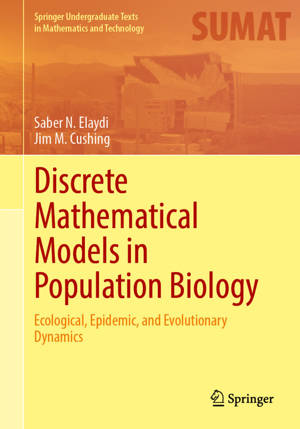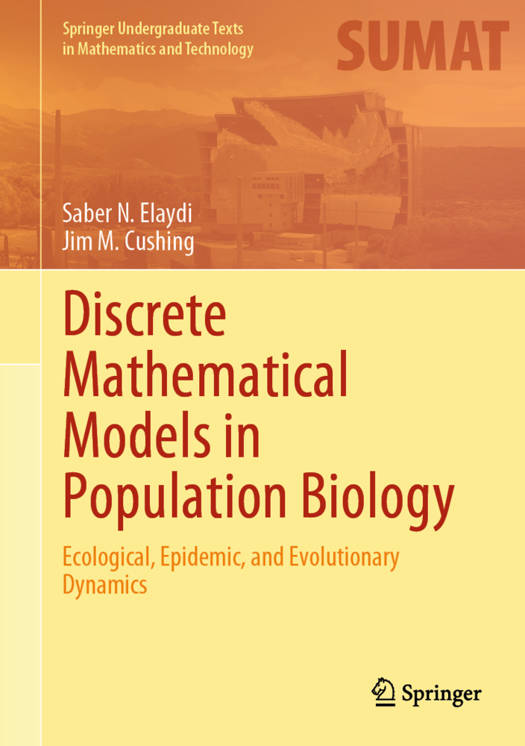
- Retrait gratuit dans votre magasin Club
- 7.000.000 titres dans notre catalogue
- Payer en toute sécurité
- Toujours un magasin près de chez vous
- Retrait gratuit dans votre magasin Club
- 7.000.000 titres dans notre catalogue
- Payer en toute sécurité
- Toujours un magasin près de chez vous
Discrete Mathematical Models in Population Biology
Ecological, Epidemic, and Evolutionary Dynamics
Saber N Elaydi, Jim M CushingDescription
This text lays the foundation for understanding the beauty and power of discrete-time models. It covers rich mathematical modeling landscapes, each offering deep insights into the dynamics of biological systems. A harmonious balance is achieved between theoretical principles, mathematical rigor, and practical applications. Illustrative examples, numerical simulations, and empirical case studies are provided to enhance mastery of the subject and facilitate the translation of discrete-time mathematical biology into real-world challenges. Mainly geared to upper undergraduates, the text may also be used in graduate courses focusing on discrete-time modeling.
Chapters 1-4 constitute the core of the text. Instructors will find the dependence chart quite useful when designing their particular course. This invaluable resource begins with an exploration of single-species models where frameworks for discrete-time modeling are established. Competition models and Predator-prey interactions are examined next followed by evolutionary models, structured population models, and models of infectious diseases. The consequences of periodic variations, seasonal changes, and cyclic environmental factors on population dynamics and ecological interactions are investigated within the realm of periodically forced biological models.
This indispensable resource is structured to support educational settings:
- A first course in biomathematics, introducing students to the fundamental mathematical techniques essential for biological research.
- A modeling course with a concentration on developing and analyzing mathematical models that encapsulate biological phenomena.
- An advanced mathematical biology course that offers an in-depth exploration of complex models and sophisticated mathematical frameworks designed to tackle advanced problems in biology.
With its clear exposition and methodical approach, this text educates and inspires students and professionals to apply mathematical biology to real-world situations. While minimal knowledge of calculus is required, the reader should have a solid mathematical background in linear algebra.
Spécifications
Parties prenantes
- Auteur(s) :
- Editeur:
Contenu
- Nombre de pages :
- 482
- Langue:
- Anglais
- Collection :
Caractéristiques
- EAN:
- 9783031647949
- Date de parution :
- 19-01-25
- Format:
- Livre relié
- Format numérique:
- Genaaid
- Dimensions :
- 178 mm x 254 mm







